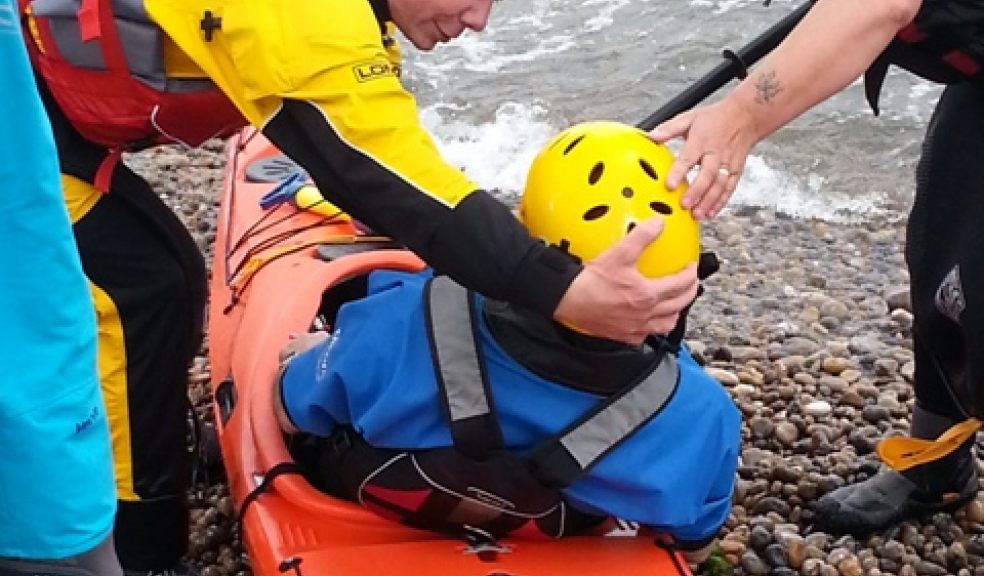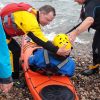
Stay safe in the water while having fun
“Stay safe in the water” is the message that East Devon District Council is promoting with its Water Safety Day, which is taking place at Beach Gardens (opposite Exmouth Pavilion) in Exmouth, on Sunday 5 July, from 10am to 4pm. Entry is free.
The event, which also involves local water sports companies, clubs and charities, aims to raise awareness of the potential risks involved in water sports, whether at sea or on inland waters, and to get people thinking about keeping safe while having fun.
Throughout the day there will be a number of informative presentations, highlighting safe use of boats and water craft generally, as well as advice about behaving responsibly in or around water. Exmouth Gig Club will be bringing along one of their rowing gigs and East Devon Training, who provide courses in lifeguard training, first aid and powerboat handling, will be attending with their powerboat.
The latest figures for water related fatalities reveal that:
- In 2013, there were 381 water related fatalities in the UK, where people died while taking part in activity on or near water
- Out of this number, 126 were walking or running
- 59 were swimming
- 50 were either angling, jumping, diving or taking part in some sort of shore side activity
- Inland water – which includes rivers, canals, lakes, ponds, reservoirs and water-filled quarries - can be extremely dangerous and in these types of locations there were 224 accidental or natural cause deaths in 2013
Many of these deaths are preventable by raising awareness and promoting good practice through education. The primary causes of fatalities, which people need to be familiar with are:
- Cold water shock – low water temperature can numb limbs and can make the strongest swimmer helpless in minutes
- Sub surface hazards - there may be entrapment hazards, as well as debris and pollution
- Currents or water conditions – this includes floods, unknown depths, ice, riptides and eddies
- Alcohol consumption – don’t swim if you have been drinking
- Swimming Competency – don’t assume because you can swim in a pool that you can deal with the challenges of open water swimming
Keeping safe on the beaches and in the water
East Devon is renowned for its excellent beaches, which are popular with people of all ages, including families with young children, active teenagers and older people. However, regardless of the reason for visiting the seaside, it is important that everyone follows some sensible precautions in order to enjoy their experience as much as possible.
- Cliff falls – cliffs are dangerous places and rock falls can occur at any time, so do not sit directly beneath cliffs or climb on them to find fossils. There are barriers to prevent people from accessing the high risk areas and signs in place to warn visitors of these hazards.
- Try and spot any dangers by checking out the beach when you arrive. Be aware of physical hazards such as rocks, piers, groynes, breakwaters and steeply shelved shingle beaches.
- Look out for undertow currents, dangerous rip currents and rising tides, which can change water depths in a matter of minutes. If you're unsure, ask the lifeguard.
- Don't swim alone - it's safer to swim with a friend. Try to make sure there are other people around - you never know when you might need help.
- Aim to swim where there is a lifeguard on patrol - look for zoned swimming areas marked by red and yellow flags.
- Look out for safety information - warning signs and flags.
- Red and yellow flags - two flags at the waters edge show where the patrolled bathing area is.
- Red flags - this means it's dangerous to bathe or swim and you should not go into the water.
- Quartered black and white flag - this shows that an area is zoned off for water sport activities. Swimmers and bathers should avoid this area as it is not safe for them.
- Children should always swim with an adult. Make sure that you know where everyone in your group is. Constant supervision is the only real means of ensuring your child is safe.
- Know what to do if you see someone in difficulty in the water. Shout for help and tell a lifeguard if there is one. Go to the nearest phone and call 999 and ask for the coastguard. Don't enter the water to rescue anyone.
All beaches have public lifesaving appliances placed regularly along either the promenades or on the beach itself. If the equipment or housing has been vandalised, please contact East Devon’s Streetscene team on: 01395 517528.
Councillor Iain Chubb, Portfolio holder for the environment at East Devon District Council said: “East Devon is renowned for its beautiful coastal waters - part of the UNESCO World Heritage Jurassic Coast - and we want people to enjoy these amenities in safety.
Changing tides and strong currents, together with icy temperatures can all have a devastating impact on unwary bathers, particularly vulnerable people such as children and teenagers. It is crucial that these dangers are not underestimated.
“East Devon’s Water Safety Event is intended to raise awareness of all different types of water safety issues and to demonstrate how to have fun in and around water safely and sensibly.”

















